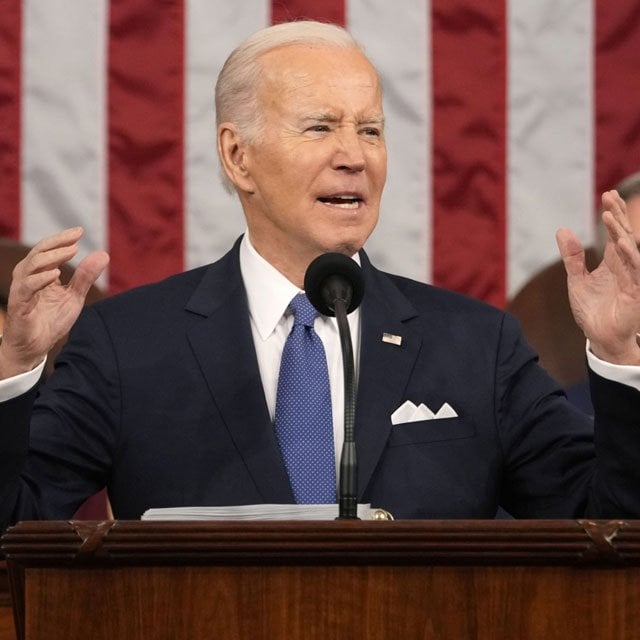Biden Unveils $6.9T Budget, Sets Up Showdown With GOP

Economic Assumptions
The Biden administration is expecting inflation to continue its deceleration path to end 2023 at 4.3%—from a current annual rate of 6.4%. The projection is largely in line with the median forecast from economists compiled by Bloomberg, a major change from last year’s release, when the White House came under scrutiny for publishing outdated economic estimates.
Biden’s economic team also sees the US economy expanding at 0.6% in real terms in 2023, in line with estimates from both Wall Street economists and the Federal Reserve.
The administration, which has capitalized on the strength of the labor market in an effort to showcase a thriving economy, sees the unemployment rate ending 2023 at 4.3% from a more than five-decade low of 3.4%.
Lowering Costs
While this iteration lacks some of the sweeping new programs Biden proposed in his first budget, the White House does propose boosting funding for programs it says would help Americans handle rising costs in the era of inflation.
The request includes $59 billion for affordable housing, and proposes expanding Pell Grants for low-income college students by $500. Biden would boost funding for free school lunches, home energy and water assistance, and health care subsidies.
Biden also asks Congress to renew an expanded child tax credit, which expired last year, of up to $3,600 per child, earning plaudits from progressive lawmakers. Biden will unveil the plan at a workforce training facility in Philadelphia, and the budget includes funding bumps for manufacturing institutes and apprenticeship programs.
Medicare and Social Security
Biden’s budget envisions extending a key Medicare program for another quarter century, largely by increasing taxes on those making over $400,000 per year. Republicans have vowed they wouldn’t touch the program, but Biden has sought to highlight past GOP efforts to overhaul entitlement programs by reducing eligibility or benefits.
Interestingly, Biden opted against a proposal offered by some Democratic lawmakers that would impose Social Security payroll taxes on wealthier Americans. Currently, income over $160,200 isn’t taxed for the program. Budget Director Shalanda Young said the decision was intended to signal that changing the program was “not on the table.”
Republican Response
House Speaker Kevin McCarthy told reporters the House budget plan will be delayed because Biden’s budget was a month late and Republicans need to analyze it. But on Wednesday, he flatly ruled out Biden’s proposed tax increases.
“I do not believe raising taxes is the answer,” he said.
Republicans are seeking to balance the budget within ten years, a feat that would likely require some $20 trillion in spending cuts if no taxes are increased. McCarthy has said he would not back cuts to Medicare and Social Security.
That means the cuts would focus on the domestic discretionary budget that covers everything from cancer research to Head Start. It will also look for savings by cutting Medicaid, food stamps and other anti-poverty programs.
Defense
The White House’s proposed $842 billion Pentagon-only request is the largest defense budget in the post-Vietnam era excluding costs of the wars in Iraq and Afghanistan, a 3.2% increase over the $816 billion that Congress appropriated this year.
The Pentagon request includes $170 billion in procurement spending and $145 billion for research and development as the U.S. looks to regain the technological edge that lawmakers and experts have lamented it has lost to China’s own ambitious defense build-out.
The White House said it wanted to speed up development of what it calls “uncrewed combat aircraft” — drones that serve as wingmen for piloted planes. Air Force Secretary Frank Kendall this week disclosed the service will request funds to buy up to 1,000 of the craft.
It also “invests in key technologies and sectors of the U.S. industrial base such as microelectronics, submarine construction, munitions production, and biomanufacturing,” said the release.
The administration’s overall national security request — which includes the Energy Department and other agencies — totals $886 billion.
(Photo: Bloomberg)




